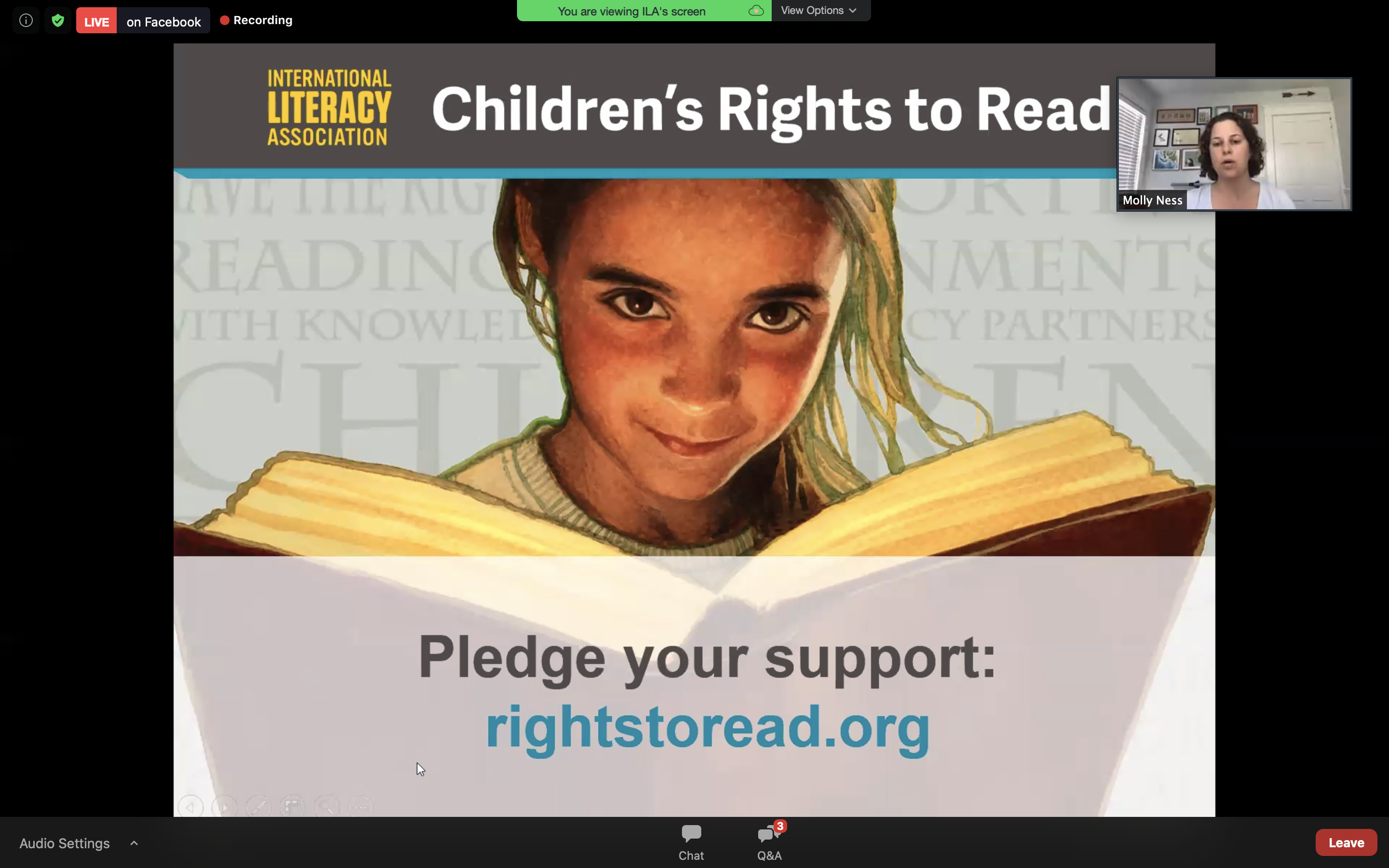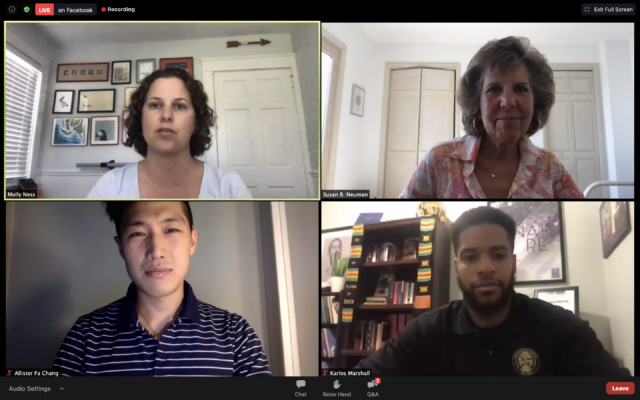Book Access in the Post-COVID Era : Some key points
Access to books is a pressing issue for students worldwide. We joined host Molly Ness, creator of the End Book Deserts podcast, Susan B. Neuman, Allister Fa Chang, and Karlos Marshall as they talk book access in homes, schools, and communities as well as impact on students in an ILA webinar entitled ” Book Access in the Post-COVID era” on July 15.
Here are a few key points from the interactive talks.
For Susan B. Neuman, it is important to connect people with books and to understand our children and address their interest through books. Literacy have to have reasons. We need to understand what drives those children to reading and what they want to learn more about.
On digital books, she stated that when children are using digital books they tend to use it on their own. It becomes personal experience. Book language matters but she encouraged that adults involve extra textual talks to engage children with books. On the question of engaging parents with books, she emphasised that parents will read when there is a reason to read. It is also important for parents to share their culture with their children. Thus, having culturally related books are important to parents.
After pandemic she suggested that we listen to children as they will want to talk about the crisis. We need to engage in these talks but also use books in the conversation. She said that we have focused too much on levelled texts and start listening to what children really want to learn about.
The second speaker, Allister Fa Chang believes that we need to see the revisit our relationships with books. He shared his story of doing voluntary work of providing books for children in unlikely places like in laundromats. He took a pity of the lack of content in local languages and suggested initiatives to provide ebooks with local materials.
When talking about engaging parents with books, he suggested that we need to look into what resources the families and the communities have. “It is not only about wealth but about the social resources”, he said. For him, unemployment and poverty are the biggest issues and that it will be difficult for many communities. We should get involved in the conversations about providing books for these communities.
The last speaker, Karlos Marshall, who has done some work in providing digital access to books to communities, used the Bishop’s (1990) analogy of mirrors, windows, and glass sliding doors to describe the availability of diverse books in digital forms. Yet, the issue was in the distribution, digital gap, and digital inclusion. He suggested that we become creative in providing books.
He also suggested that life after pandemic would be more about ” mindset”. He urged that we be more courageous, innovative and not afraid to fail and use it as an opportunity to explore and create. (ed.)




Comments :